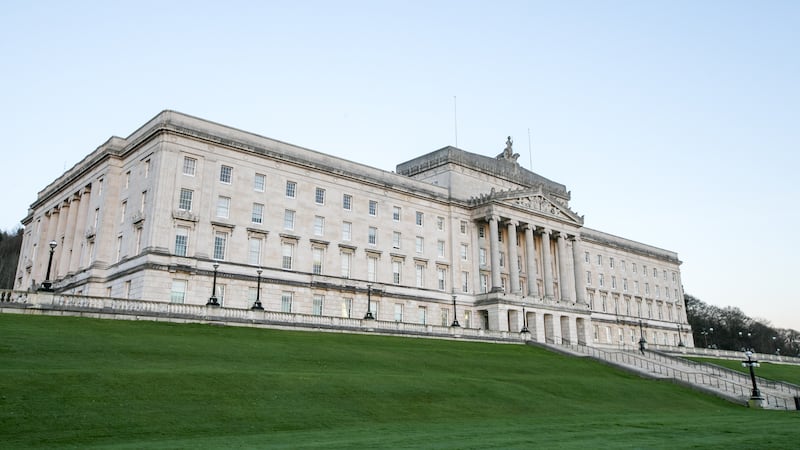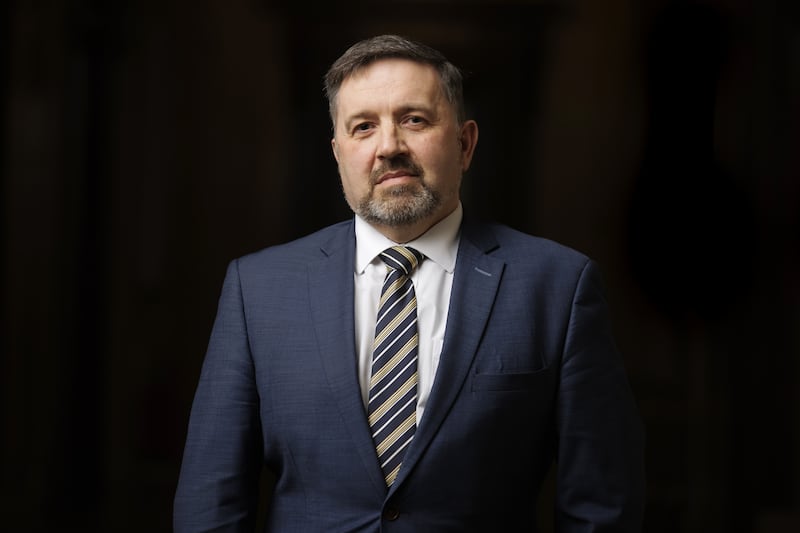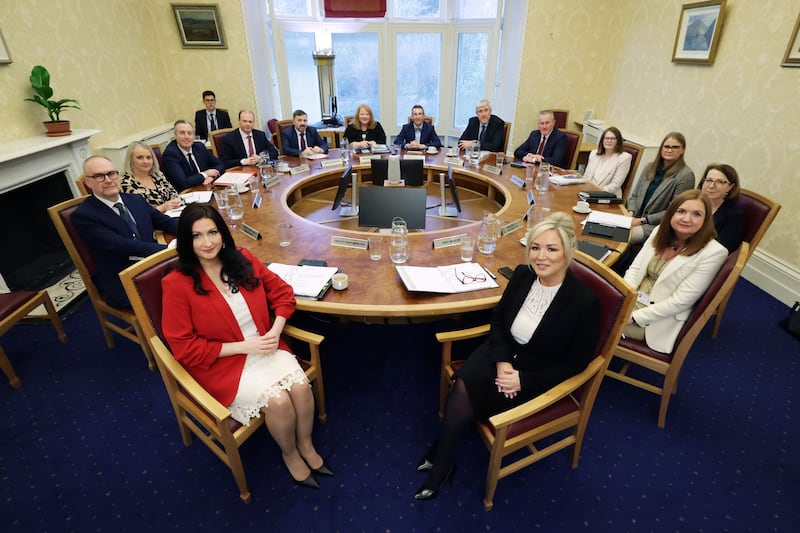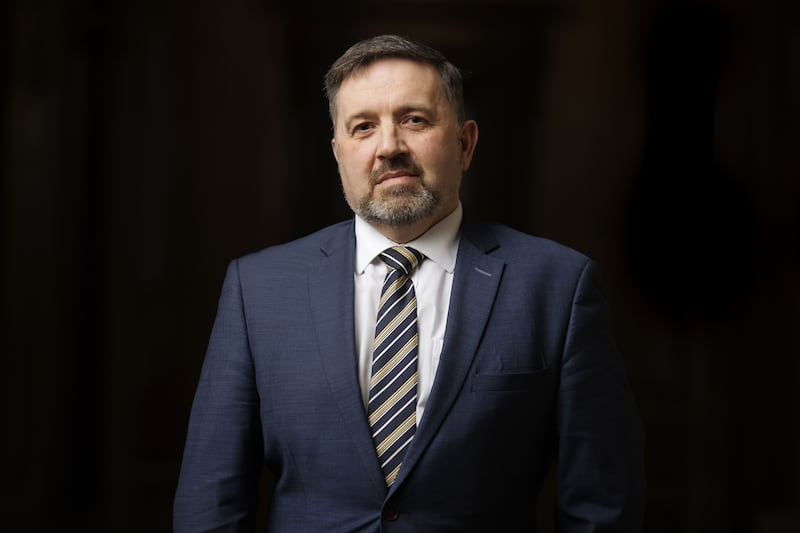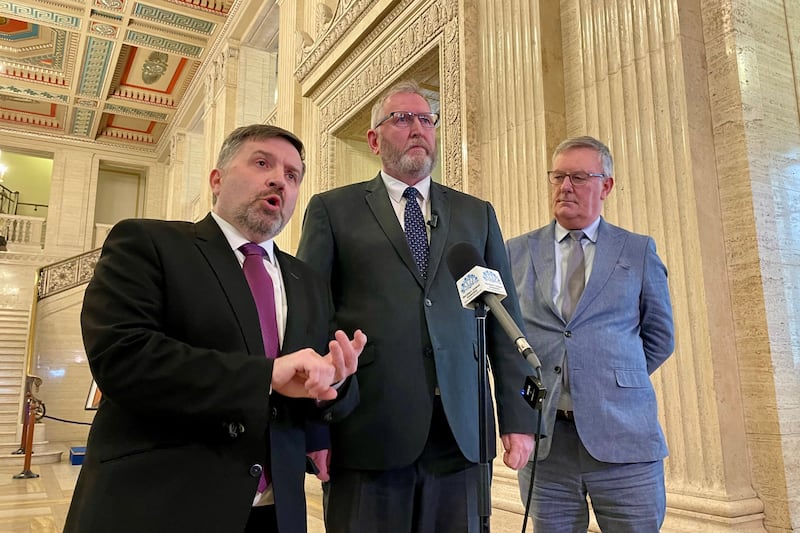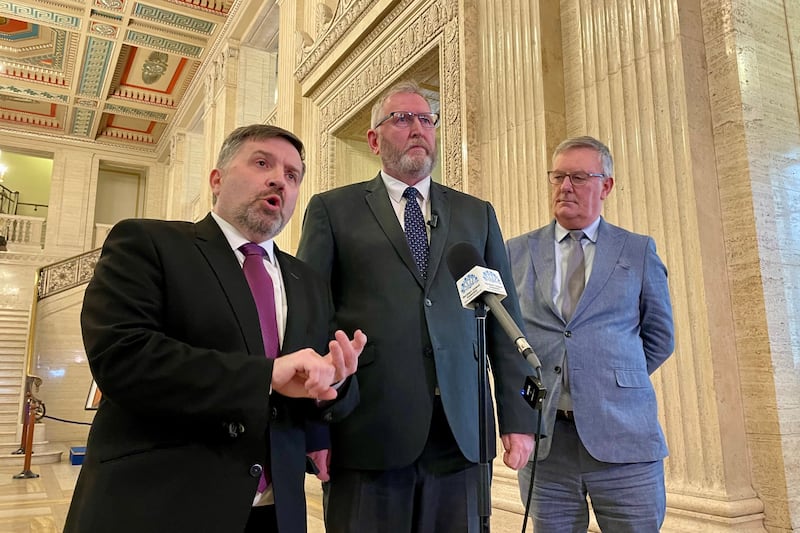Delivering a balanced budget was one of the Treasury’s three conditions for wiping a £559 million debt built up by Stormont departments overspending in previous years.
Finance Minister Caoimhe Archibald delivered that aspect on Thursday after securing executive approval for her 2024/25 budget, albeit with Health Minister Robin Swann dissenting.
All ministers will say they received less than they asked for.
That was to be expected.
We knew from the briefing given to the finance committee last week that there was a shortage of around £2bn from what ministers had requested.
We now know how Caoimhe Archibald has split the £14.44 billion budget for departments.
Overall, the £14.44bn represents a 6.8% (£925 million) uplift on the budget set by the Secretary of State at the outset of the 2023/24 financial year.
Health and education have taken around 70% of the total allocated for the day-to-day running of Stormont’s departments.
Health Minister Robin Swann’s department has been allocated £7.7bn for 2024/25, some £454.8m more than what Chris Heaton-Harris allocated at the outset of 2023/24, and 53% of the total budget for running Stormont this year.
But health received hundreds of millions of extra funding towards the end of the last financial year from the Treasury package to restore Stormont.
That’s why Robin Swann has claimed his 2024/25 allocation represents a 2.3% cut to his budget.
The health minister, who previously said his department needed an extra £1bn just to stand still, was the only minister to vote against the budget at Thursday’s executive meeting.
The allocation for education (£2.87bn) represents an additional £297m on April 2023, an 11.5% uplift, the biggest percentage increase for any department.
Notably the only department to receive less than last year is the finance minister’s own.
The decision by Ms Archibald to cut her own departmental allocation by 6.4% (around £10m) effectively throws down the gauntlet to other ministers.
They have been handed their funding envelope and now must live with it and decide accordingly how to spend it and decide what to cut.
With the reluctance of executive ministers to grasp the unpopular nettle of revenue raising, this was perhaps where we were always destined to end up.
Dangers lie ahead for any department that overspends its allocation.
The Treasury will simply subtract that overspend from next year’s block grant, potentially making for a even tougher budget and risking the deal to wipe that £559m of debt from previous overspending.
Ministers have pinned their hopes on the Treasury agreeing to new revenue model for the north that could raise the block grant allocation.
But even if the Treasury agrees, it’s unlikely to happen overnight.
Until then, kicking the revenue raising can down the road has left ministers with tough choices that they must own.
